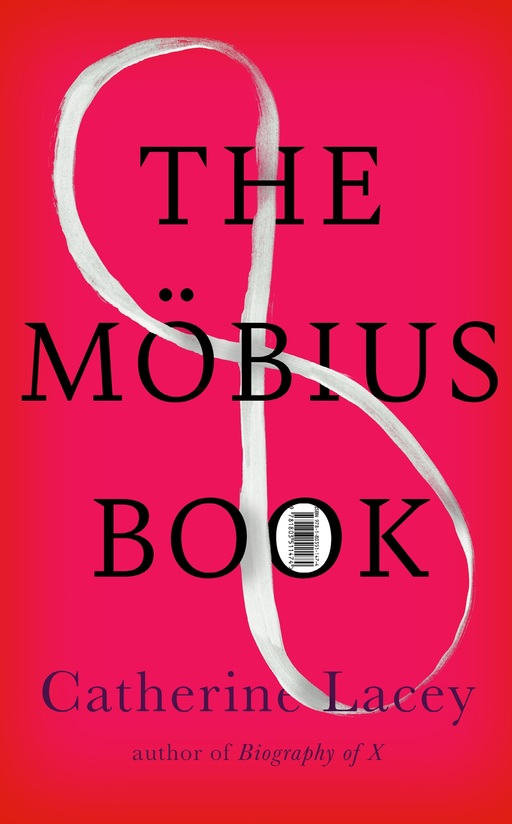Catherine Lacey on her fiction-memoir hybrid The Möbius Book
Following a devastating break-up, acclaimed author Catherine Lacey wrote a hybrid fiction-memoir exploring its tumultuous aftermath. We chat with Lacey about breaking genre conventions and attachments to both love and narrative
“An object of rage” – this is how Catherine Lacey described her latest work, fiction-memoir hybrid The Möbius Book, on first delivering it to her editors. Or she did, until her editors gently pointed out that an object of rage is not necessarily a book. She laughs ruefully, wincing when I ask when in the editing process the anger was excised. “There’s still definitely some in there, right?” she says. “The rage is doing a lot of things. I think it’s very normal to experience betrayal – like I trusted this person completely, or this situation or religion, and it betrayed me. I think that’s a foundational human experience.”
The betrayal that provides the basis for The Möbius Book, and the rage that catalysed it into being, took place in 2021, when Lacey’s partner of several years left her for another relationship through the means of a politely worded email. The resulting break-up left her devastated and unmoored from her practice as a published author, instead turning to diaristic scraps that she never intended to make public. “I had a year where I was like, I don't know how to write,” she explains. “When I got to the end of that year, I realised I had forgotten to make money, I had just given myself time to do whatever. So even [at] the beginning, I didn't think I was writing a book. At one point, I called the non-fiction half an inventory, because that's what it felt like.”
The aftermath of the break-up, and the inventory of feeling that Lacey recorded, make up one half of The Möbius Book. Turn the book around though, and there is a new beginning (or a new ending); a novella about two friends meeting in the wake of their own relationship breakdowns. Affinities and parallels emerge between the two sections: male anger sits heavy across both halves; an incident with a dying animal creates a haunting interlude; and all the characters – Lacey’s fictional ones and herself – are deeply preoccupied by ideas of faith, and what it means to place hope inside an idea or a person. A seasoned fiction writer – she was named one of Granta’s Best Young American Novelists – Lacey’s delve into non-fiction is a pivot away from her previous work, and its dialogue with her well-trodden landscape of fiction a fascinating generic subversion.
“There are much fewer rules about books than people think there are,” she says, when I ask if she considers this hybridity an act of disruption or generation. “Right now, marketing departments don't know how to categorise this: should it be non-fiction or fiction? But that's their problem. That's not my problem.” She is deeply indebted to marketing departments, she adds, laughing, but the distinction between a book’s commercial and creative demands is, she says, a salient representation of the freedom that actually exists in writing, if you look beyond institutional boundaries. For Lacey, this generic experimentation is then less a concern with breaking rules and more an imperative to follow the needs of the work, and what is required to navigate particular aesthetic or narrative quandaries.
“When I started writing Biography of X, for instance,” she says of her antecedent work, a fictional biography of a fictional artist, “I wasn’t like, ‘Oh I know how this novel is going to be.’ I didn’t have a shape for it. I was first interested in what the voice of a woman grieving her wife would be like, and I just followed that thread until it gave me more options. Like, how do I get through this problem that I've created for myself. It's not necessarily disruptive – that moment of finding a way through can feel revelatory.”

It may not be a work of deliberate disturbance, but Lacey’s dualistic approach allows for an interrogation not only into the fluidity of generic boundaries, but also into how the organising principle of narrative can communicate moments of intense personal rupture. ‘Much has been written on the subject of crying in Manhattan, as writers tend to cry in public,’ she writes in the memoir portion shortly after her seismic break-up. ‘[A]nd anyway, you could make the argument that half if not all of published writing is a form of crying in public.’ The Möbius Book’s relationship to vulnerability – the supposedly exposing nature of autobiography, the supposedly distancing nature of fiction – probes at the paradox of pain, its simultaneously unique and universal constitution.
“There’s a Deleuze line – I can’t find where he said it – that life is not personal,” Lacey says. “Sometimes when things happen we’re like, ‘Oh, I don’t want this public, I’m very private.’ And it’s like, you’re private about what? There is nothing happening to you that isn’t happening to everybody else.”
The Möbius Book may defy categorisation, but in other ways it sits firmly within a now trending genre of writing: the divorce book, in which women dissect the aftermath of both their marriages and the institution at large. Lacey is sceptical about the veracity of this supposedly emerging genre (“I feel like people have always written about relationships?” she laughs), but she remains deeply interested in the granular affective conditions of relationships – both ongoing and ending – and what they say not only about our attachments to love, but to particular life narratives.
“I think part of a break-up is mourning a version of yourself that's not going to exist, that you had become attached to and expected would be a stabilising presence in your life,” Lacey says. “Suddenly that person that you didn't even realise you were having a relationship with is severed. It’s a grief [that’s] hard to talk about, because why would you be attached to this future version of yourself when you're not there yet? But I do think part of love is a relationship to a form of yourself that you think can only be reached through this person. And to some degree, it's true: there are specific forms of ourselves that can only be reached in relationship with this friend or this lover.”
It is impossible, when it comes to love and desire, to entirely separate expectation from reality, or our investment in particular ideas from our investment in a particular person. Coming to terms with the paradox of relationships, Lacey argues, involves sitting with the duality of it all: the contradictions of pleasure and hurt, fantasy and reality that they contain. “There’s so many fantasies around love that are unhelpful. But there’s real shit there too,” she says. “I think sometimes when your heart gets broken, you want to be like, ‘Oh, it was all a lie.’ And it's like, no, it was many things. Somebody can hurt you deeply and also have loved you deeply. That was a hard lesson for me to understand. I think I had gotten attached to the idea that somebody that loves you won't hurt you.” It comes down, I suggest, to the difference between love and security, and the ways in which their supposed synonymity is an illusion. “Yes,” Lacey laughs. “Like, they barely even know each other.”
‘Pessimism might be an insurance policy against disappointment, and optimism a total buying into a different fantasy, but maybe a love of fate could be both and neither,’ Lacey writes in The Möbius Book, drawing on Nietzsche’s concept of amor fati – a Stoic surrendering to both joy and loss. It is an invitation towards complexity – that an object can be one-dimensional and three-dimensional at the same time, that love can both nurture and undo us, that narrative can work as a tool of entrapment and liberation. “The narratives other people put on us, or the narratives that we're attached to, can be very limiting,” Lacey says. “But if you're able to grapple with your own narrative, see a version of your story and other people's stories [and how these] change over time, then it's our sense of narrative change that is redemptive.” It can seem strange to find redemption in rupture but, as Lacey has come to learn, it is all a matter of perspective. “It's a process of seeing how things aren't stable,” she says of her writing, but also of life, “and how that's a wonderful truth to keep learning.”
The Möbius Book is released on 19 Jun via Granta
